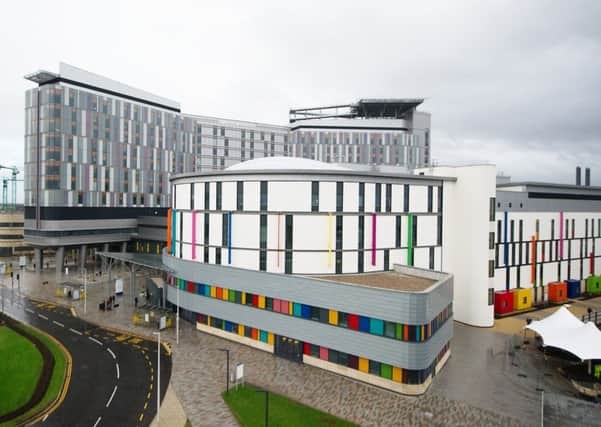Baby cleft surgery services to move to single Glasgow site


The existing facilities in the two cities will begin merging early next year and will become a single surgical team within six months.
The move is subject to several conditions being met, including that the team ensures a consistent Scotland-wide approach with no deterioration in service and that the number of outreach clinics across the country will not be cut.
Advertisement
Hide AdAdvertisement
Hide AdFurther conditions include Scotland becoming a more active participant in the Cleft UK Audit and for the National Services Division to monitor the merger.
Parents protested the move to close the Edinburgh facility and presented a 6,200-signature petition to Holyrood calling for a rethink of moving all cleft lip and palate surgery to Queen Elizabeth University Hospital in Glasgow.
About 100 babies are born in Scotland each year with the condition and surgery can help them talk and eat.
NHS board chief executives recommended the merger following a review of the current two facilities.
Health Secretary Shona Robison said: “I have accepted this recommendation from the expert group who have advised that consolidating these procedures will deliver a more sustainable service and improve equity in outcomes for patients, which is our main aim when making any decision.
“We have been careful to ensure that there are a number of conditions in place to aid a smooth transition for both staff and patients.
“This decision relates to cleft surgery only. The wider teams involved in cleft care including speech and language therapy, orthodontists, ear, nose and throat surgeons and paediatric dentistry, as well as local outreach clinics, will continue to be delivered locally as they are now, across Scotland.
“We will have cleft surgeons working alongside one another and sharing best practice and knowledge, with an even distribution of surgical procedures, which means patients will get the treatment they need when they need it.
Advertisement
Hide AdAdvertisement
Hide Ad“In any scenario like this it’s important to spend time listening to patients, families, stakeholders and experts, which is what I have done, so we can come to a fully-informed decision that is in the best interests of cleft patients.”